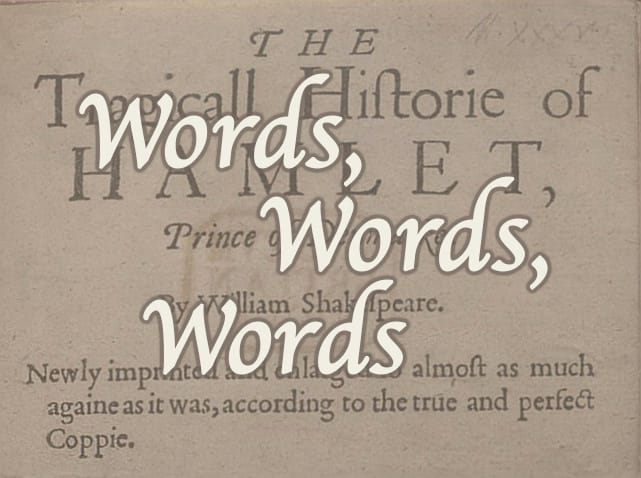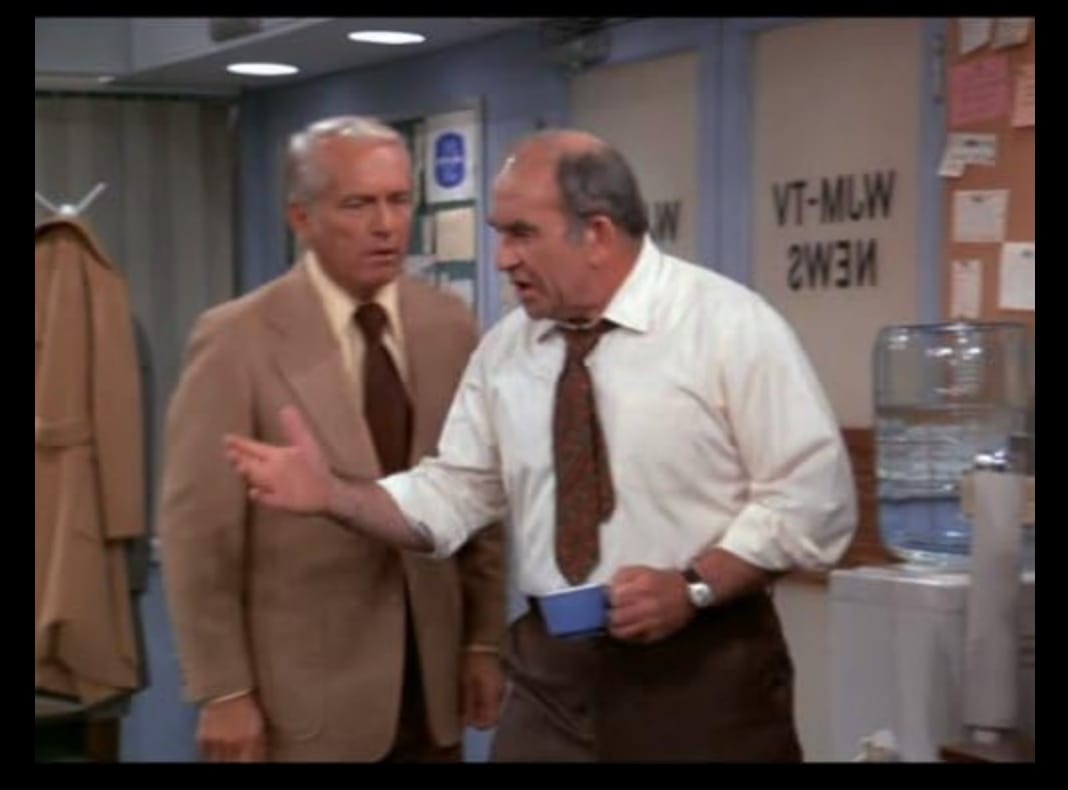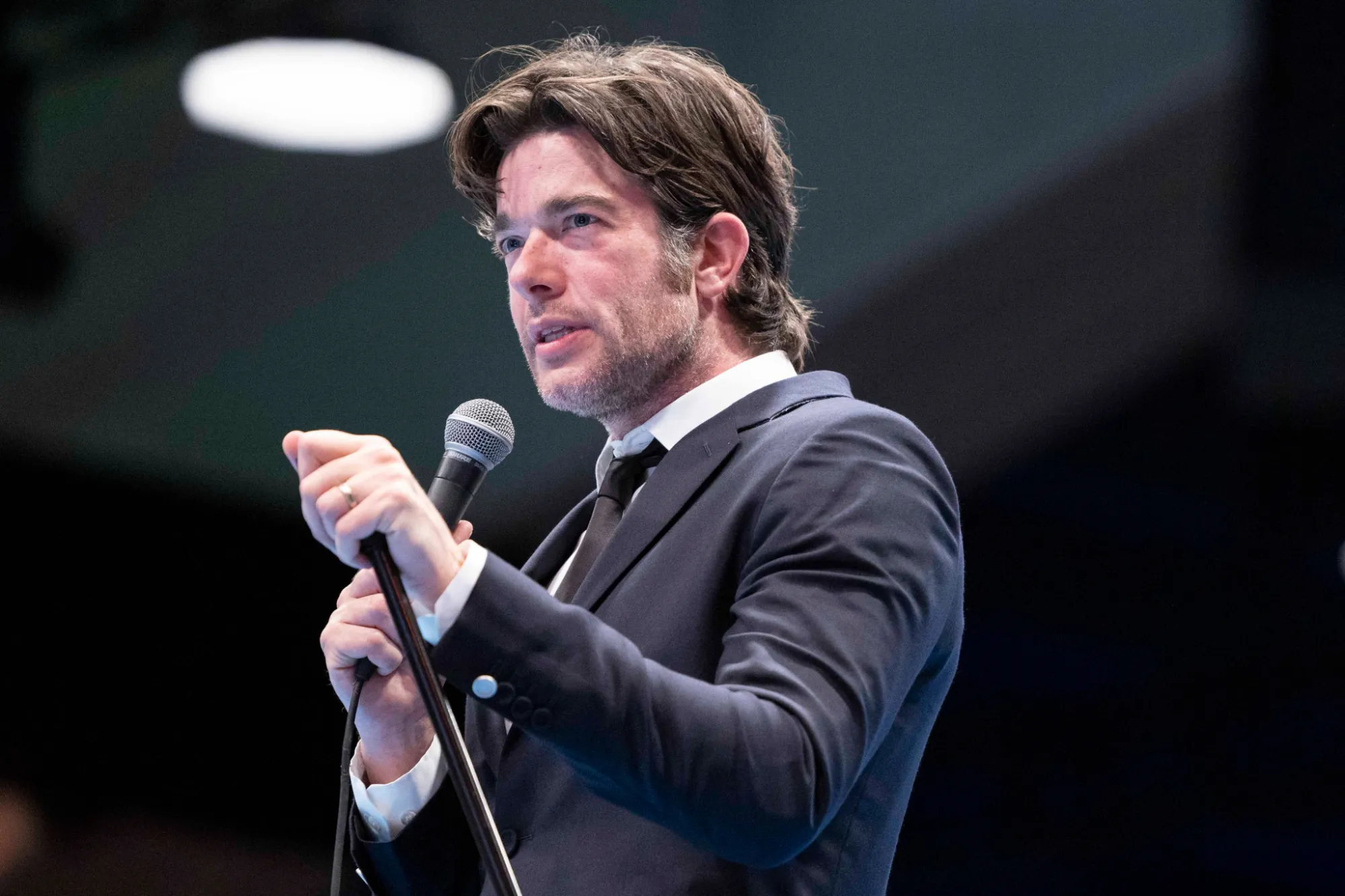Words, Words, Words
Like any modern cultural contagion, nonsensical corporate blather has spread to civilian use, mainly via social media. We hardly do anything in person anymore, so you're likely to hear this junk being overused as you scroll your Facetagram pages, or whatever media you pay attention to.

Polonius: What do you read, my lord?
Hamlet: Words, words, words.
Polonius: What is the matter, my lord?
Hamlet: Between who?
Polonius: I mean, the matter that you read, my lord.
Hamlet: Slanders, sir: for the satirical rogue says here that old men have grey beards....
Polonius: [Aside] Though this be madness, yet there is method in’t.
–Hamlet, Act II, Scene ii.
I think we can all agree that it's a wonderful thing that Shakespeare just gave Hamlet "words" to say, and not some hackneyed, overused, phrase like "I think we can all agree..." Can we all agree? Billy Shakespeare was quite the word doctor, so when he tosses off something like "words, words, words," you know to dig for deeper meanings.
Let's be thankful that Billy S. wrote in iambic pentameter and not corporate jargon:
Polonius: What’s on your radar, my lord?
Hamlet: Data, data, data.
Polonius: What’s the core issue, my lord?
Hamlet: Who’s the stakeholder here?
Polonius: I’m referring to the content you’re engaging with, my lord.
Hamlet: Defamation, sir: according to this negative feedback loop, the key demographic shows indicators of aging...
Polonius: [Aside] Though this may be disruptive, There may be radical innovation in this unconventional strategy.
I'm so tired of words. Not all words, but our culture's buzzwords, jargon, and slang. We love to create insider language for our in-groups. We speak in code within our tribe. It somehow makes us feel unique and self-important. There is language that is specific to our family. There is slang that is familiar to us socially. And there is the insipid jargon of our workplace. The expressions and phrases used in professional circles appear at first hearing, an effort to be precise and exclusive to our particular profession. "I think we can all agree" that the same hackneyed twaddle repeated by puffed-up individuals "punching above their weight" trying to "leverage" language, makes for awful communication. And rather than giving the message a sense of gravitas, it all begins to sound like insipid corporate-speak.
Here are the top ten phrases or expressions that need to be struck from the boardroom (and break room.)
10- inflection. By definition, inflection is a bend. In that Zoom meeting that you had to put a clean shirt on for, a middle manager from accounting (?) production (?) begins to drone on about how the company is coming to a point of serious change. Profits will spike upwards. "We're reaching an inflection point." Only the manager is as tired and indifferent as you are and keeps reading his script as "infection point." No one notices. Let's get rid of this bad infection.
9- drill down. Slang for going into more detail about the topic at hand. Probably started with a boss who rose up through the ranks... started out in the field on the drilling crew. Thought it was clever to use some oil field lingo as metaphor in the staff meetings. "Let's drill down through the layers of inefficiencies that need to be flared off so we can bring up the sweet crude of 3rd quarter profit. Am I frackin' right, team?!" Just stop it. Cap that well.
8- Let's unpack that. This one is fairly recent. As a phrase, it's certainly more polite than, "What the f**k are you talking about?" It means that you need to 'splain yourself, Lucy. Pack this one up and get rid of it.
7- Let's let that idea marinate for a while. This is also designed to lessen the blow of a more direct approach, which might sound like, " Geez Dave, that idea sure seems boneheaded to me. Why don't you walk that one out to the car and bury it in your yard when you get home?" Not that you care, much... you only wish that it was you, and not your idea that was being sent out the door to get all marinated.
6- circle back. Let's come back to this thought... maybe now, or maybe when Haley's comet returns. (If we "circle back," don't we just end up where we started from?) Leave it.
5- action this or even more disturbing, actioning. It's always a bad move to take a word away from its word class and use it as a different part of speech. Someone up in the C-Suite thought they'd be clever by making this perfectly reasonable noun into a verb. "Hey Bob, action this invoice and get it paid, will you?" "We still haven't actioned any of the goals we set last week, Dave, your crew should start actioning in the warehouse immediately." The intent is to sound cutting-edge. In reality, the C-Suiters sounds like a C minus student in an English-as-Second-Language class. Action this one to the round file.
4- let’s take this offline. In the best case, this means, "Ahh, we'll talk about this later." If said in a slightly sinister voice, then it becomes shorthand for "This sucks so hard that I don't want to expose the rest of the staff to your mental shortcomings." Delivery is everything with this one. So let's just take it offline. Way offline.
3- I don't have the bandwidth. The first time I heard this, I actually laughed out loud. It took me a minute to realize that the person was trying to appear exasperated, overworked, and incredulous with one pretentious phrase. It was helpful to think how soon a robot that DID have plenty of bandwidth would replace her.
2- customer experience. This one is annoying due to overuse. It started out honestly enough, with company owners and managers finally realizing that most businesses are more than a simple transaction. A restaurant meal should be more than a plate of good food brought to the table. A retail store should be more than shelves lined with goods. A hotel stay should be more than a just bed and a functioning bathroom.
The problem with "experiences," besides the fact that companies obsess over them, (and are clueless on how to create them) is that now, people expect them. Especially among the younger set, every restaurant, bar, hotel, evening out, or dog walk needs to be experiential. A trip to the gas station needs to be exciting and memorable. (They have this big, stuffed beaver at Buccee's! And the bathrooms... to DIE for!) I've heard table conversations that reflect dissatisfaction with a restaurant having the same menu... as it did last week! How BORING! Restaurant managers live in constant fear that their fickle customer base will not support good food, service, and atmosphere... they want new and different and exciting! An experience!

1- let’s see if the juice is worth the squeeze. This is my all-time favorite, and it results in a spit-take whenever I hear it. Some Ted Baxtor type leans across the boardroom table to say, "I dunno, Lou. Do we think that the juice is worth the squeeze?" Who pulled this one off the fruit tree? And isn't there a concern that H.R. would be all over this for the sexual innuendo? Or is that just me? Please squeeze in the privacy of your own home.
But that's all corp-speak. Mostly vile, yet sometimes amusing. These cliches used to be confined to the workplace. Like any modern cultural contagion, nonsensical blather has spread to civilian use, mainly via social media. We hardly do anything in person anymore, so you're likely to hear this junk being overused as you scroll your Facetagram pages, or whatever media you pay attention to.
A couple of examples... everyone on the planet is worn down by "thoughts and prayers." It undoubtedly started as well-intentioned shorthand to signal hope or maybe condolences to someone. Now it is almost cynical in its ubiquity. "I was ____ years old when I learned _____" that this was a tiresome phrase. It was cute, the first ten times you heard it. Phrases like these need to be retired. They have plenty of company.
Here are my top ten words/phrases that need to clear out:
10- enthusiast. One who likes something. Kind of cute when used in an ironic way. "He is quite the hamburger enthusiast." But surprise, it got out of hand. Unless you're a cliche enthusiast, strike this from conversation.
9- safe space. This was a term invented to denote a physical or online place that was harm-free... where language was policed, sensitivities were high, and feelings were monitored. "No Hurt Feelings" is the sign over the door. Nothing bad can happen. The problem is... humans. We build phony walls around people. The phrase creates a false sense of security that is sure to be disappointing if not tragic when the wolf walks through the door.
8- my truth. As in, "I'm just trying to live my truth." A declaration of sticking to personal values... even if it means going against social norms... at least it seems all noble like that. In reality, the phrase has devolved into a get-out-jail-free statement that roughly means, 'So what do I care what you think?' As in, "Hey Lance, how come you quit your job, left your wife and kids, and took up with that stripper from the Grab-em-by-the-Kitten Lounge?" "Just living my truth, Chris. Living my truth."
7- adulting. "Adulting is so hard." Yeah, we've heard that, and most of us live that, without whining about it. So pull up your adulting-ready Depends™ and take the trash out. And this expression with it.
6- fur babies. I gack up a fur ball when this one gets repeated. And it's never said with any sarcasm. "Mommy is gonna pick up her fur babies from the vet this afternoon and then we'll get extra treats before our walkie-walkie." Gggaaahkkkk-aaaacccchhhhhkkkkkkk.
5- rizz A recent addition to the young slang-slingers in the hood. Shorthand for "charisma," rizz is what you have when you have it, whatever IT is. Can also be used as a verb... "Chaz got all rizzed up when he approached those girls at the bar."
4- vibe, vibing, vibe check The mood. Applied to a person, place, thing... "This club has a great vibe." "The band made for some good vibing." "Hey, Dudeman, need a quick vibe-check on the party next door. Worth a hang, or not?" If you know anyone under 30, these terms infect every conversation. Kids always have their slang, just as we did. I only worry that this one will enter into the lexicon of all of us busy with our adulting. Let's nip this one in the bud. I simply don't have the bandwidth for it.
3- bro, bruh, brah. I'd rather you just take your press-on fingernails and run them the length of a mile-long chalkboard than for you to address me as "bro," "bruh," or "brah." Short, of course, for "brother," it's got the feel of some obnoxious frat boy getting the "bruhs" together for Spring Break in Vail. Worse, it has become more identified with the rulers and shakers in the computer/software/crypto space... "tech bros." This covers anyone from the elite Gates/Musks of Internet Land down to the well-tatted programmers with double-length beards and lumberjack shirts puffing on high-stink cigars who write code. For a long time, these bruhs ruled the earth, possessing a rare and much needed skill. The sad truth is that the code that they are writing now is quickly, permanently eliminating bro demand. AI is writing its own code. Nutjob Elon Musk laid off 90% of his Twitter workforce... it may be a hot mess editorially, but functionally it keeps humming along. Google, Meta, Expedia, Microsoft and more have followed suit. Sorry, brah. (Ewwww. "Brah" is the worst... it may have originated from some sort of Yankee accent for "bruh." But why would you address anyone as a piece of women's shapewear?)
2- woke. Yeah. This one got old, quick. It originated in the black community, and dates back to the mid-20th century. Blacks urged each other to "stay woke" and aware of racial injustices. Early blues artist Lead Belly even referenced it in "Scottsboro Boys," a song about nine black teens in Alabama wrongly accused of rape and originally sentenced to death. It warns of the dangers of a racially prejudiced justice system and concludes in a spoken afterword, "I advise everybody to stay a little careful when they go down there, stay woke, keep your eyes open."
Before Lead Belly, a national movement called the "Wide Awakes" supported Abe Lincoln in the 1860 election, advocating workers’ rights and the abolition of slavery. And if you're from the Bible Belt, you might understand it as a reference to
the parable of the wise virgins (Matthew 25:1-4).
In the early 2010s and the Black Lives Matter movement gained steam, "woke" expanded in meaning to include awareness of racial injustice, LGBT prejudice, and sexism. Progressives, it seems, needed to be woke about any harm to any aggrieved class.
The ultra-right boiled. They appropriated "woke" and bludgeoned progressives with it, using it as a slur for every policy, politician, activist, demonstration, and movement that they deemed liberal. College campuses were woke, as were all Democrats, Hollywood movies, EVs, non-evangelical religions, and any music that wasn't traditional Nashville-based (white) country.
And woke became tiresome.
"You're woke."
"So what? Woke means I care!"
"Woke is creeping into our preschools!"
It's like having MSNBC in one ear, and Fox in the other.
Be woke and anti-woke quietly. The woke word needs to go to bed.
1.- journey If you're headed home from the Trojan War and it takes you ten years because you encounter obstacles like a giant Cyclops, witches, lotus-eaters, and then the God of Sea decides to toss you around in a storm... then that is a Journey. If you jump into your Subaru, grab a pumpkin spice latte at Starbucks, and have a little trouble finding a parking spot before you put in your shift at Initech, that is NOT a journey. It is simply, Tuesday. Building an exact replica of the Kon-Tiki and sailing to the Polynesian islands from South America is a journey. Parenting a couple of kids while trying to maintain a sense of sanity is not - that's called life. Your diet isn't a journey, nor is your pregnancy, nor is grad school.
I get it, a journey doesn't necessarily have to be related to travel. It's a metaphor. Again, overuse has made it meaningless. Pick up a thesaurus! Talk about what an "adventure" toilet training your toddler was. Share the joy of your wedding planning "exploits." Discuss the "ordeal" of your recent long-term illness.
Social media seems to pique our egos, turning us into self-marketers. We seek status in the most common, mundane things. We try to elevate the daily grand with grandiose words and we end up diminishing our experiences with overused, hackneyed language.
At last week's "Dreamforce" convention, billed as the “largest AI event in the world,” tens of thousands of tech bros (oh, sorry) gathered in a frenzy of self-admiration. They booked comedian John Mulaney to perform a set for tens of thousands of attendees. Corporate gigs like this are worth hundreds of thousands of dollars for A-list performers like Mulaney. That usually buys a little insurance against the slings and arrows of ridicule. He took the money and proceeded to rip into the mere concept of AI as well as all of those in attendance.

“You look like a group who looked at the self-checkout counters at CVS and thought, ‘This is the future... What’s important here is that we’re looking for solutions,” Mulaney said sarcastically. “And in looking for solutions, what we’re really after is insights, which then lead to success. Now, start prepping the humans for robots."
And then he cut their inflated egos down to size.
“Some of the vaguest language ever devised has been used here in the last three days,” he continued. “The fact that there are 45,000 ‘trailblazers’ here couldn’t devalue the title any more.”
Mulaney's right. If everyone is unique, then no one is unique. Our words become trivial.
As Polonius said, "Though this be madness, yet there is method in’t."
I'm not convinced. It's just madness.
Y'all have a great Monday journey.